The World's Greatest Chess Games (1998) by Graham Burgess, John Nunn, and John Emms presents analysis of one hundred games from the sixteenth game of the 1834 match between Alexander McDonnell and Louis Charles de Labourdonnais to Viswanathan Anand's defeat of Joel Lautier at the Biel Chess Festival, 1997. The list of the best one hundred in Burgess, et al. needs to be updated to embrace games played since 1997, but it is a start.
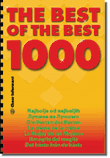
Chess Informant's Best of the Best 1000 (2008) republishes games that appeared in Chess Informant from the inaugural issue in 1966 to CI 100, published in December 2007. Black's win in Nielsen-Ivanchuk was judged the best of that volume, edging out Sandipan-Tiviakov (Sandipan won) by one point.
The best game of each volume is chosen by a panel of judges, usually numbering nine, but volume 14 had seven, and three volumes have had ten. Through the past three years, eight judges have become the norm. Each judge rates the ten best games. Each judge's best gets ten points, number two gets nine, and so on. The tally determines the winner, which is republished in the next volume along with the scores. These one hundred Golden Games produce a list of the best games 1966-2007.
These two lists of one hundred differ, and not only because they cover different spans of time. In the Chess Informant series, Vladimir Kramnik's round six win with Black over Garry Kasparov at Dos Hermanas 1996 received the third highest vote total of all the Golden Games,* but it is Kramnik's eighth round win (again with Black) over Ivanchuk that appears in The World's Greatest Chess Games. That game finished second in the polling of judges, although it garnered first place votes from Bareev and Shirov. Kramnik earned 87 of 90 possible for the win over Kasparov, but 55/90 for the game against Ivanchuk. In the voting for CI 66, third place (Kasparov's loss to Topalov) and seventh (Ivanchuk's loss to Anand) were also from the Dos Hermanas event.
Concerning the win over Ivanchuk, Burgess and crew wrote:
This game embodies the best element's of today's younger generation: a carefully prepared opening novelty involving a positional sacrifice; dynamic and aggressive play; refusal to be content with a draw; finally, exact calculation in an ultra-sharp position. Ivanchuk's efforts at counterplay are no less ingenious than Kramnik's attacking manoeuvres, but it takes only a small slip for White's king to succumb.Against Kasparov, Kramnik's haste in time trouble did not produce the best move from this position, although his move was adequate for victory.
Burgess, et al., World's Greatest Chess Games, 540
Black to move
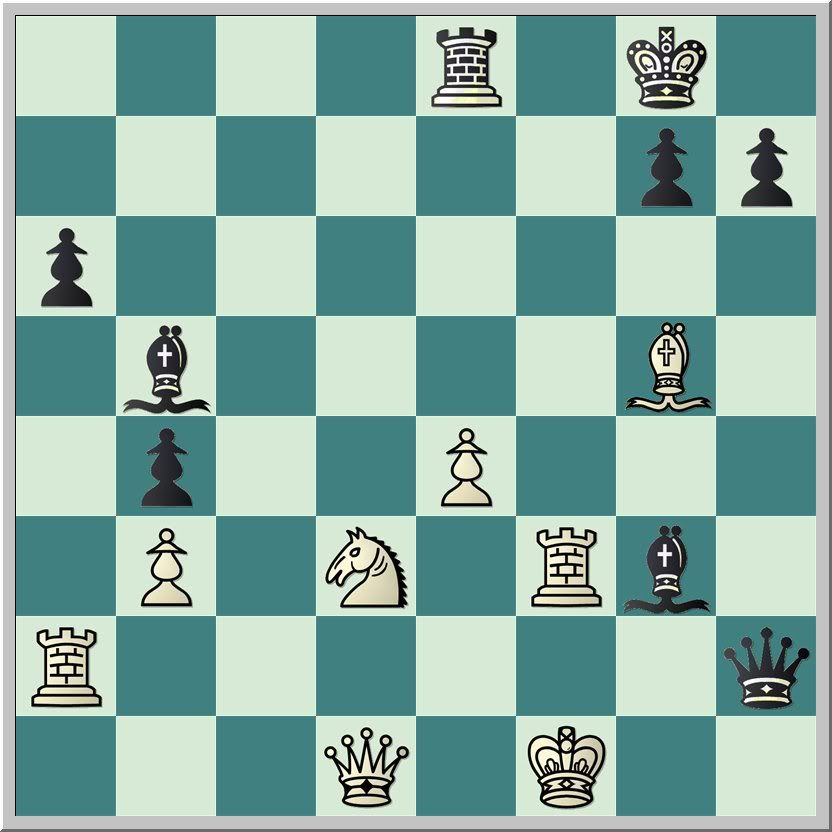
What was Black's most convincing continuation?
Reader's Contest
I wrote about the Chess Informant text in "La crème de la crème," but did not emphasize the contest open to anyone that purchased the book. Readers are asked to pick the ten best Golden Games. Those participants whose selections are most consistent with the aggregate will win more Informant goods. As the end of December looms, the pressure mounts to complete my entry. It is not an easy matter to choose.
What criteria should I employ?
Brilliant innovation?
Triumph over stubborn opposition?
Instructive value?
Error free execution?
Historic significance?
Statistical analysis of voting patterns?
Political considerations?
Favorite players?
...
Among the candidates, there is certainly a lot to be said for Veselin Topalov's speculative sacrifice from Topalov-Anand, Sofia 2005.
White to move
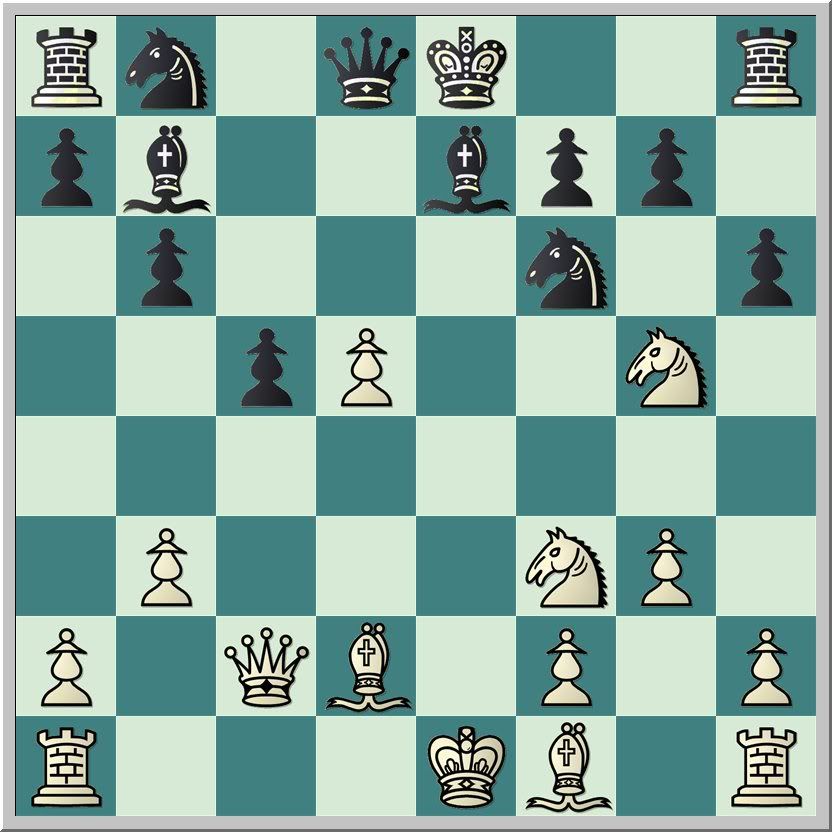
14.Nxf7
In Anand's annotations to the game, it was the novelty 11.Neg5, preparing this move, that merited the good move symbol. It is a great game due to Anand's able defense through Topalov's persistent and ultimately successful attack from his opening novelty through the endgame.
White to move
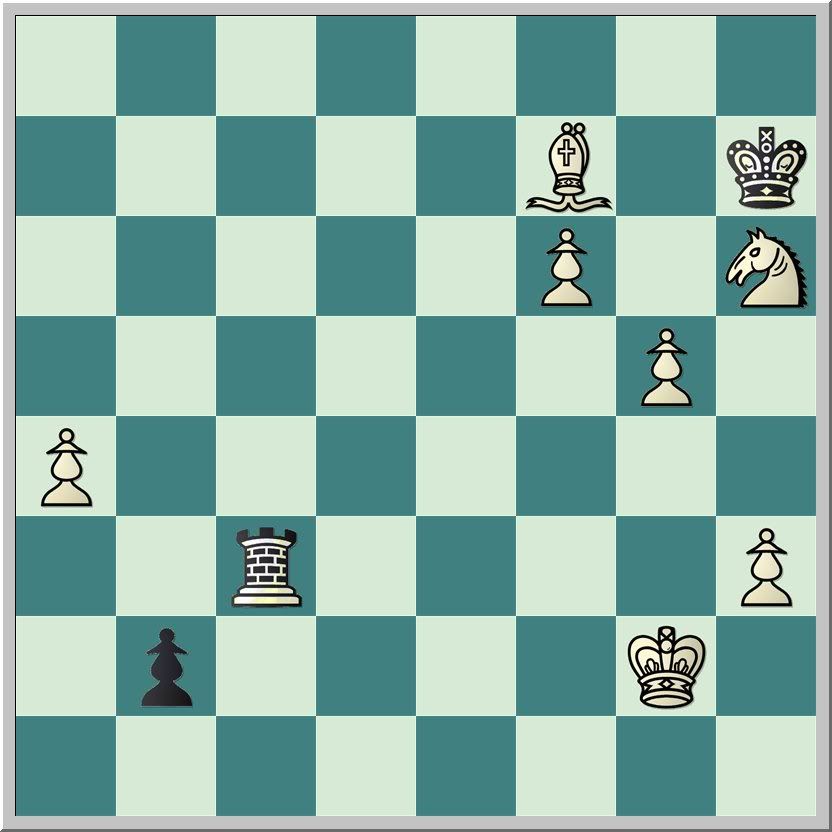
After 52.Nf5, Anand resigned. Black can promote the pawn, but that leads to checkmate in four. The alternative--bringing the rook back for defense, then promoting the pawn--loses the newly made queen and the rook, and then White's a-pawn can promote unless White opts to mate with the two minor pieces.
This entire game is replayable at ChessBase News, and there are many places online to find analysis, including SimpleMind blog.
*Ivanchuk-Shirov, Wijk aan Zee 1996 (CI 65/417) also scored 87/90 in the vote tally. Alexei Shirov, who lost this game, was one of two judges that did not give it first place.


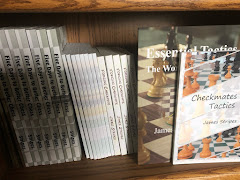











My favorite moves are the ones that look like the worst move on the board, yet are actually winning moves--the best move on the board. I need to post some of those positions...
ReplyDeleteWhen it comes to best games, I think that both players have to contribute: "It is a great game due to Anand's able defense through Topalov's persistent and ultimately successful attack from his opening novelty through the endgame." Some of the truly best games are drawn, but those don't get chosen for the Informator very often. To sum up, if you only count decisive games, I go for the ones where one side makes one subtle error and the winner then plays basically perfect chess, where anything less wouldn't win.
There are very few such, but I suppose all of us have it as a goal to play such a game once in our career.
Wahrheit,
ReplyDeleteGood point about draws. I agree. Many hard fought games that end drawn are beautiful, instructive, and exceptional in all respects. None of the Golden Games were draws, and perhaps none of those in the 1000.